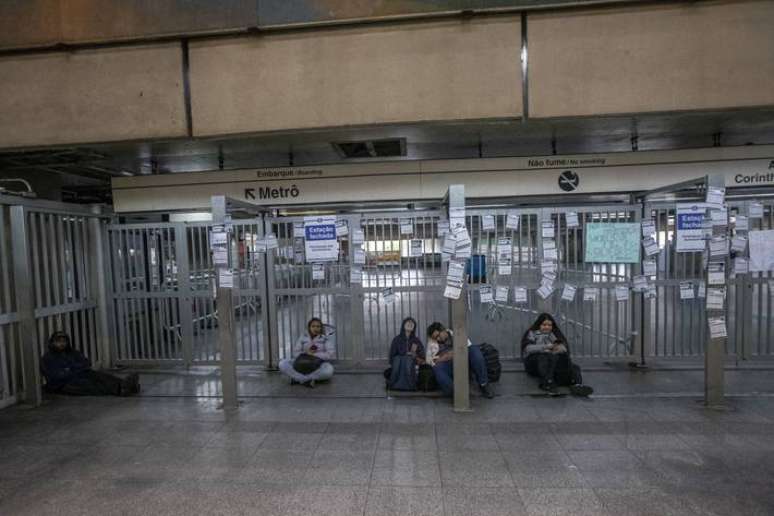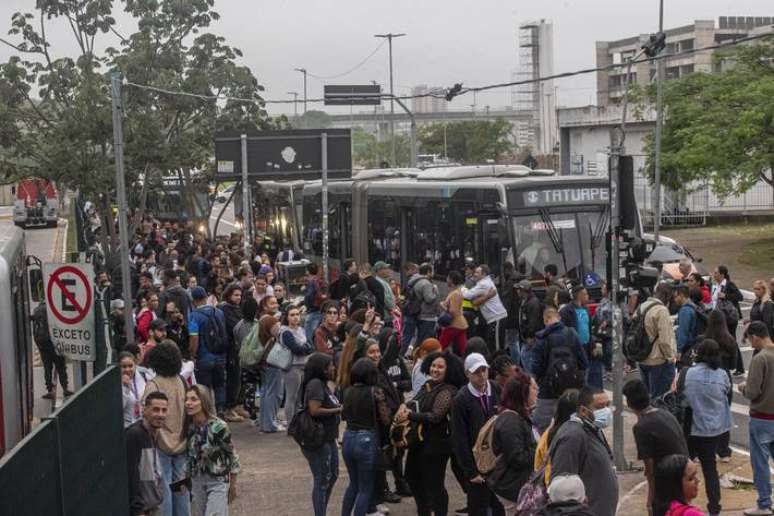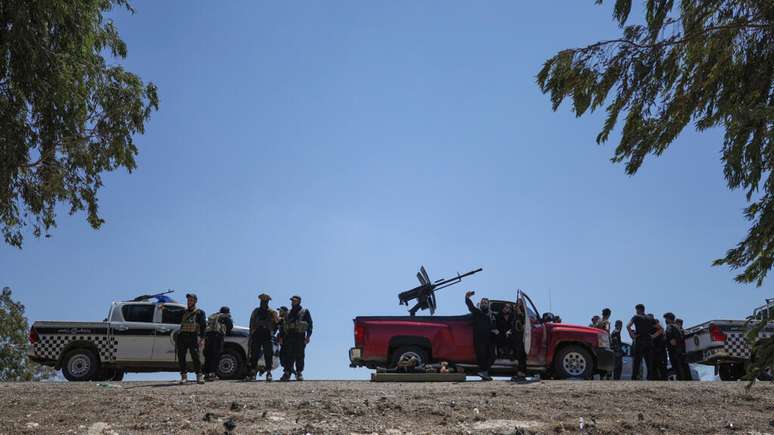Strike affects transport in capital and metropolitan region this Tuesday; buses have become fuller
A strike this Tuesday, 3, which affects the operation of the metro and CPTM lines in São Paulo caused inconvenience to passengers attempting to travel around the capital and metropolitan region. The disruption has caused a pilgrimage between lines which remain operational, increasing travel times early this morning. Additionally, buses have become fuller and app ride prices are higher than average given demand.
Nurse Tatiana Souza, 41, plans a “real pilgrimage,” as she describes it, to go to work this Tuesday because of the strike. She is an employee of a hospital in the Santa Cruz region, in the southern area, she normally goes to the Corinthians-Itaquera station, she takes the Red and Blue lines of the subway and gets to work. The journey takes approximately 45 minutes.
“Today, due to the strike, the idea is to go from the CPTM to Estação Paulista, take the Yellow line to Pinheiros station, take the Emerald line to Santo Amaro station and, finally, take the Lilla line to go to work “, he said. The expected time is at least double what it normally takes: 1h30. “At least one colleague will join me in this.”
Maria Adelina, 42 years old, a domestic worker, decided to take the bus to reach her workplace in Morumbi. Having trouble finding her route, she borrowed a colleague’s cell phone to surf the Internet and discovered that it would take about an hour and a half longer than normal. “It’s a lot of trouble. Everything is easier with the subway. Besides, the buses will definitely be full,” she said.
In Jabaquara the gates were closed at dawn, with strike posters and a group of subway workers explaining the reasons for the strike to the population. Passenger movement was small, but some people, like Josemir Teixeira, 29, a painter, didn’t know about the strike and ran into the door when they arrived at the station on their way to work.

“I live on the border with Diadema and work in Raposo Tavares. I take the metro every day around 6 in the morning,” says Josemir. “The company I work for hasn’t said anything about the strike, I just found out. I informed them and they’re sending someone to pick me up, because I can’t go by bus from here.”
More expensive application
Residing in Jardim Santo Antônio in the east, nursing technician Katia Angelina, 38, prepared to order a car from an app around 5am. The idea was to try to circumvent the strike and arrive on time at work in an institute in Indianópolis, in the southern area. Even asking in advance, the ride cost R$170.
“I couldn’t afford it, so I came by bus to the Corinthians-Itaquera station to try to get a car from here,” she said, who normally takes the subway to work. The working day began at 8 in the morning. When she arrived at the station, she found the place much more crowded than normal. The price of the ride was R $ 70. “It’s much higher, but I can’t do anything, I’ll take it out of pocket.”
The ride between Ermelino Matarazzo and Tatuapé, both in the east, costs around R$30 on normal days; Today it costs about R$45. A trip from Itaquera to Avenida Paulista costs about R$58. A trip from downtown to Butantã, which on good traffic days can cost less than R$30, costs about R$45 this morning. more of R$40.
Which subway and CPTM lines are affected by this Tuesday’s strike?
Subway
• Line 1-Blue: closed;
• Line 2-Green: closed;
• Line 3-Red: closed;
• Line 15-Silver: closed.
CPTM
• Line 7-Rubi: from Caieiras to Luz;
• Line 10-Turquoise: closed;
• Line 11-Corallo: from Guaianases to Luz;
• Line 12-Sapphire: closed;
• Line 13-Giada: closed.
The categories protest against the privatization plan
The categories are against the privatization of the three public companies. Unions argue that the transfer of activities to the private sector, by the direction of the governor Tarcisio de Freitas (Republicans), greater discussion with society is necessary and that projects of this type could worsen the quality of services.
“We want the cancellation of all privatization and outsourcing processes of public companies, and we ask for an official plebiscite to consult the population on the privatizations of companies,” said Camila Lisboa, president of the subway workers’ union, during the assembly of Monday.
In a press statement Tuesday morning, Sao Paulo governor Tarcisio de Freitas called the strike a “political,” “illegal” and “abusive” movement. For the CEO, the strike reinforces the need to privatize companies, one of the main objectives of the current administration.
“It is precisely the granted lines that work. This only reinforces that we are in the right direction,” Tarcísio said. “We will continue to study concessions and it is not an illegal movement that will take us away from this goal.”
Source: Terra
Rose James is a Gossipify movie and series reviewer known for her in-depth analysis and unique perspective on the latest releases. With a background in film studies, she provides engaging and informative reviews, and keeps readers up to date with industry trends and emerging talents.






